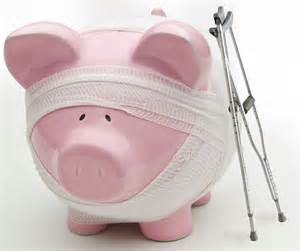 When choosing a health insurance plan, you may also have the option to select a Health Savings Account (HSA). It helps to offset the out-of-pocket costs associated with the high-deductible health insurance plans that are so popular today. As many as 17.4 million or 6.2 percent of insured Americans are enrolled in an HSA. Is this type of account right for you?
When choosing a health insurance plan, you may also have the option to select a Health Savings Account (HSA). It helps to offset the out-of-pocket costs associated with the high-deductible health insurance plans that are so popular today. As many as 17.4 million or 6.2 percent of insured Americans are enrolled in an HSA. Is this type of account right for you?
What is an HSA?
Created in 2003, HSAs allow you to save tax-free money in a checking account or investment account. You can use that money to pay your deductible and a variety of other qualified medical expenses.
Do you Qualify for an HSA?
The High Deductible Health Plan (HDHP) you choose determines if you qualify for an HSA. These plans usually feature a low monthly premium and allow you to save money in an HSA for medical expenses. Eligible plans include an individual deductible of $1,300 with an out-of-pocket maximum under $6,450.
Do You Have Significant Qualified Medical Expenses?
If you expect to need surgery, have a chronic illness or want to become pregnant, an HSA will come in handy because it allows you to save money in preparation to pay for these expenses. Additionally, IRS Publication 502 outlines qualified medical expenses. They include:
- Dental visits and procedures
- Vision exams and eyeglasses
- Deductibles and co-pays
- Lab and testing
- Medical procedures
- First aid supplies
Can You Afford the Contributions?
According to IRS rules, you as an individual can contribute up to $3,350 per year in your HSA. Elect to have money deducted from your paycheck, and it’s not taxed. You may also deposit after-tax money into the account regularly.
Do you Want to Save Money for Your Future?
The money you invest in an HSA accumulates interest, rolls over each year and can sit in the account indefinitely. As you age, you can use the funds to pay for Medicare premiums, nursing care and other qualified expenses.
Is an HSA right for you? Talk to your insurance agent for more details. With this investment, you can afford to take care of your health.





